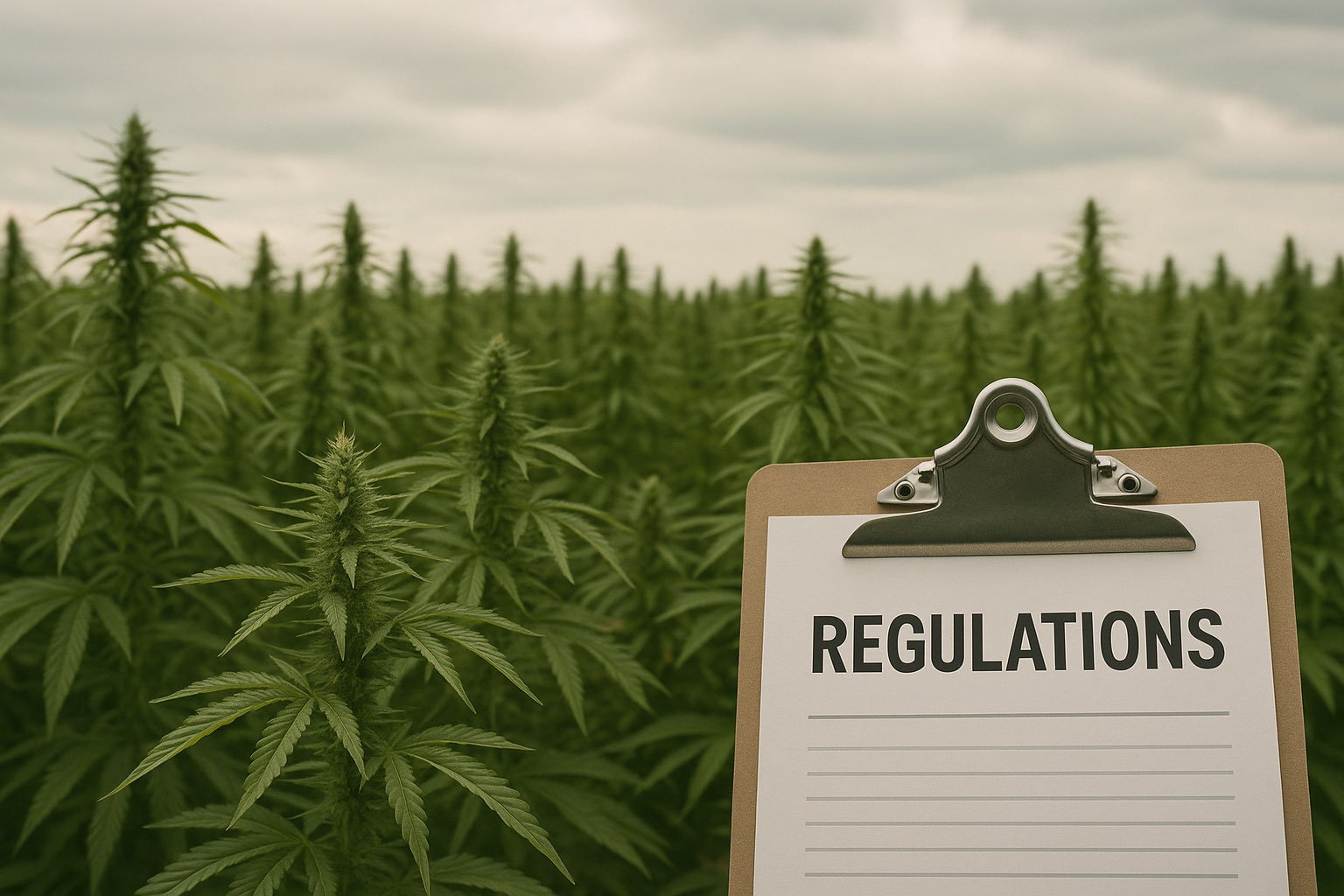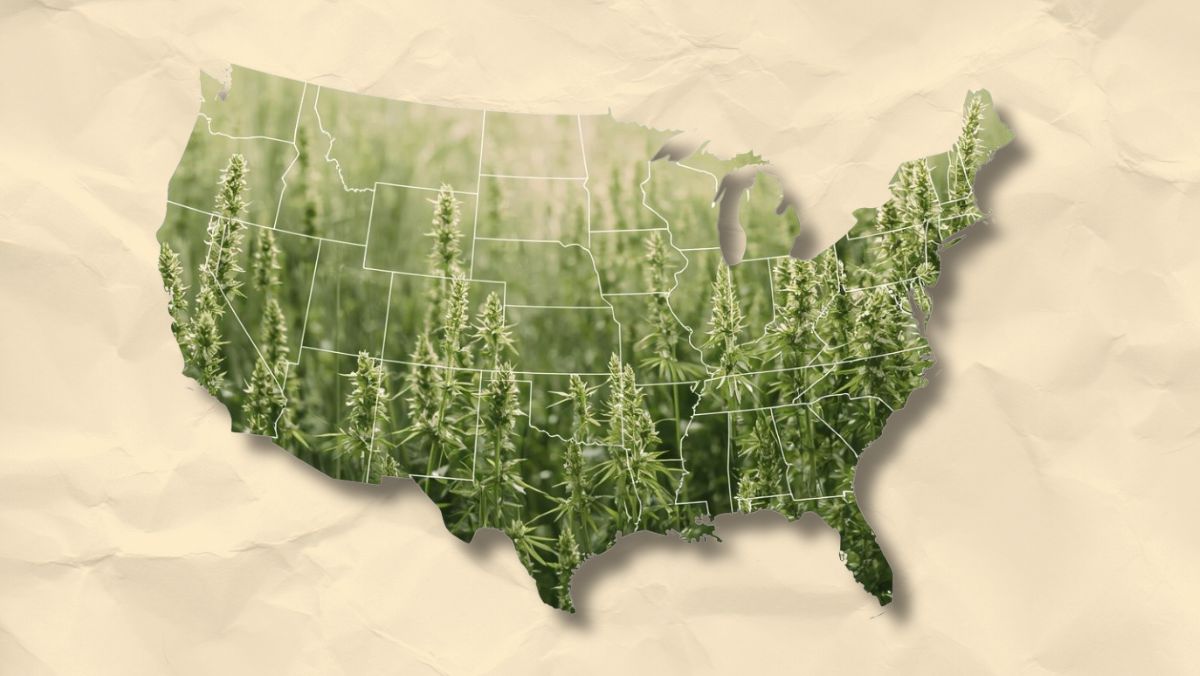Florida’s hemp industry entered a new era this year, as the state finalized two major rule updates under the Florida Department of Agriculture and Consumer Services (FDACS). The March 2025 amendment established food-grade safety and lab testing standards for all hemp extracts intended for human consumption, while the November 2025 update added stricter packaging and marketing rules to prevent products from being accessible to children. Yet just as Florida solidified its industry framework, a newly passed United States law seeks to upend it.
Florida’s Hemp Market: A Thriving Industry at a Crossroads
Florida’s hemp economy has evolved into one of the nation’s largest and fastest-growing, now valued in the billions of dollars. According to Florida Phoenix, a 2023 analysis from Whitney Economics estimated more than 104,000 Floridians work in hemp-related businesses, earning over $3.6 billion in annual wages. From CBD tinctures to hemp beverages and edibles, the state’s retailers and manufacturers have fueled a booming wellness sector that rivals traditional agriculture in scale and innovation.
That growth, however, has sparked fierce debate.
Industry advocates say hemp offers safe, plant-based alternatives for veterans, seniors, and everyday consumers seeking therapeutic products. Opponents—including anti-drug groups and competing operators—argue that intoxicating hemp products have spread too widely through gas stations and convenience stores, putting consumers at risk.
State lawmakers are also divided, balancing the economic benefits of hemp against calls for stricter oversight.
Past Attempts to Ban Intoxicating Hemp Compounds in Florida — and Why They Failed
Florida lawmakers have wrestled with how to manage intoxicating hemp-derived cannabinoids since the products first appeared on store shelves.
In 2024, the Florida Legislature advanced a sweeping measure (SB 1698 Food & Hemp Products) that would have banned Delta-8 THC and imposed heavy restrictions on other hemp-derived compounds. Industry leaders warned it would shutter small businesses and erase thousands of jobs across the state. Governor Ron DeSantis ultimately vetoed the bill due to concerns about overreach and economic harm.
Determined to revisit the issue, lawmakers reconvened in early 2025. House Speaker Daniel Perez established a bipartisan hemp workgroup, chaired by Rep. Michelle Salzman. The effort collapsed before reaching a final vote, as the House and Senate were unable to reconcile key differences.
That failure left regulatory responsibility squarely with the Florida Department of Agriculture and Consumer Services (FDACS) to enforce the hemp extract rules enacted in March 2025 and November 2025.
Inside Florida’s 2025 Hemp Extract Rule Updates
Florida’s 2025 hemp extract rules focused on consumer safety, product integrity, and market accountability while keeping the industry intact.
March Update: Building Food-Grade Standards for Hemp Extracts
The March 2025 amendment to Rule 5K-4.034 transformed Florida’s hemp market by aligning it with the same food-grade safety standards that apply to traditional consumable products. The rule introduced comprehensive requirements for licensing, manufacturing, testing, packaging, and labeling—replacing years of ambiguity with enforceable structure.
Licensing and Permitting
FDACS requires every business manufacturing or selling ingestible or inhalable hemp products to hold a Hemp Food Establishment permit, renewed annually for $650. This ensures each facility operates under approved sanitation and inspection protocols, elevating hemp production to the same level of oversight as food manufacturing. The permit number and information about their manufacturer must be printed on the COA.
Testing and Product Standards
All hemp extracts intended for human consumption must undergo full-panel laboratory testing for potency, heavy metals, residual solvents, pesticides, microbials, and mycotoxins. The rule also reaffirmed the 0.3% total delta-9 THC limit, banned synthetic cannabinoids, and introduced new definitions for expiration dates and water activity to prevent contamination.
Packaging and Labeling Requirements
The rule modernized labeling by mandating ASTM D3475-20 child-resistant packaging, QR codes that link directly to Certificates of Analysis (COAs) valid for 90 days after expiration, and clear serving-size and cannabinoid disclosures. It also prohibited health claims and any packaging or advertising considered “attractive to children.”
Age Restrictions and Enforcement
Retailers must verify that all purchasers are at least 21 years old, both in-store and online. FDACS enforces compliance through stop-sale orders, fines of up to $5,000 per violation, and the suspension or revocation of permits.
November Update: Refining Marketing and Child Protection Rules
The November 2025 amendment to Rule 5K-4.034 built upon the foundation established in March, refining language related to marketing, packaging, and enforcement. This update sharpened how Florida defines and regulates what makes a hemp product appealing—or misleading—to consumers, particularly minors.
Child-Protection Standards
FDACS strengthened its authority to restrict marketing that targets or attracts children. The rule introduced a new legal definition for “cartoon,” encompassing any character or illustration with exaggerated features, human traits, or superhuman abilities. By adding this clarity, FDACS closed loopholes that had allowed playful or animated designs to appear on product labels and advertisements.
Advertising and Brand Compliance
The amendment expanded the definition of materials considered “attractive to children” by directly linking the rule to the Florida hemp program statute 581.217(3)(a). This alignment ensures uniform enforcement across all product categories, including edibles, vapes, beverages, and tinctures. Brands must now avoid using bright colors, familiar candy motifs, or playful themes that could confuse consumers or appeal to minors.
Technical and Regulatory Clarifications
The November update reaffirmed every testing, packaging, and THC limit set in March. It also cleaned up statutory cross-references, ensuring inspectors and licensees follow consistent guidance across all hemp regulations.
The Federal Crackdown That Undercuts Florida’s Progress
Just 11 days after Florida’s latest hemp rule updates took effect, the federal government took a dramatically different approach. On November 13, 2025, President Donald Trump signed a funding package that includes a new national definition of hemp—one that effectively bans nearly all hemp-derived THC products.
- The law limits total THC to 0.4 milligrams per container, a threshold so low that it disqualifies most hemp extracts currently sold, including many nonintoxicating formulas.
- It also bans all synthetic or chemically converted cannabinoids, such as Delta-8 and Delta-10 THC.
- The Food and Drug Administration (FDA) now has 90 days to publish a full list of covered cannabinoids and define what constitutes a “container.”
- The law provides a one-year transition period, with the ban scheduled to take effect in November 2026.
Industry Response: ‘365 Days to Regulate, Not Ban’
The Hill reported that trade associations and hemp companies reacted swiftly. The U.S. Hemp Roundtable called the measure “a serious blow” but urged collaboration rather than surrender, stating: “We’re disappointed, but not defeated. Our new mission: 365 days to regulate, not ban.”
The group emphasized bipartisan efforts, such as Rep. Morgan Griffith’s draft proposal, which would create a national regulatory framework for hemp-derived cannabinoids within the Food, Drug, and Cosmetic Act. The draft included milligram thresholds and labeling requirements without eliminating the category altogether.
What Happens Next
Despite federal prohibition, some predict enforcement will vary widely by state. Analysts told MJBizDaily that the federal government lacks resources to pursue individual retailers, much as it does not police state cannabis programs today.
Others hope the one-year implementation window will allow Congress to craft a regulatory alternative before the ban takes hold.
Reversal Efforts
Sen. Rand Paul announced plans to file a new bill next week to overturn the ban. He argues the ban will wipe out a $25 billion industry, cost thousands of jobs, outlaw products adults rely on therapeutically, and override sensible state regulations that already include age limits. His proposal would let state hemp rules supersede the new federal prohibition, creating an “end-run” approach that avoids debates over dosage caps while preserving state autonomy.
The senator conceded that he now must convince his colleagues to reverse a policy they have already voted for, but he believes a state-control model may attract broader bipartisan support. Democrats such as Rep. Ilhan Omar support a regulatory framework over prohibition, while others, including Rep. Andy Harris, defend the ban and dismiss industry concerns.
A few lawmakers, including Rep. Nancy Mace, have already filed repeal amendments, though some worry that a direct repeal could fail.
The Bottom Line
For Florida hemp businesses (and hemp brands nationwide), the message is clear: maintain full compliance with state testing and labeling rules, and prepare for rapid policy shifts ahead. As the nation enters a year of transition, Florida’s science-based regulatory approach stands as proof that hemp can be managed responsibly—without destroying an industry built on innovation and transparency.
Contact ACS Laboratory today to understand how the new federal hemp THC legislation affects your products, learn how to stay compliant, and secure testing you can trust.









.png)




.png)
.png)
.png)
.png)